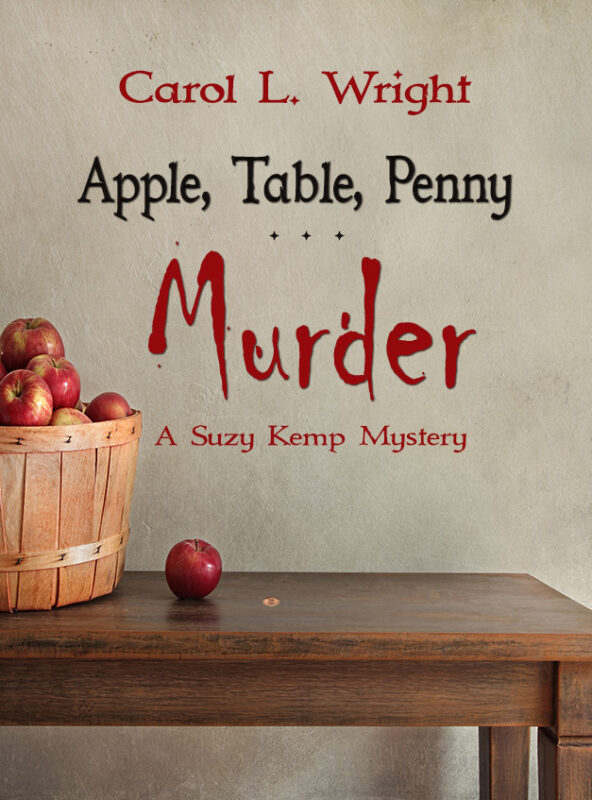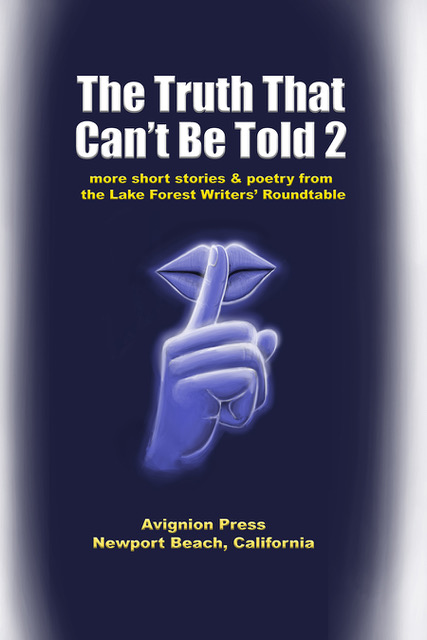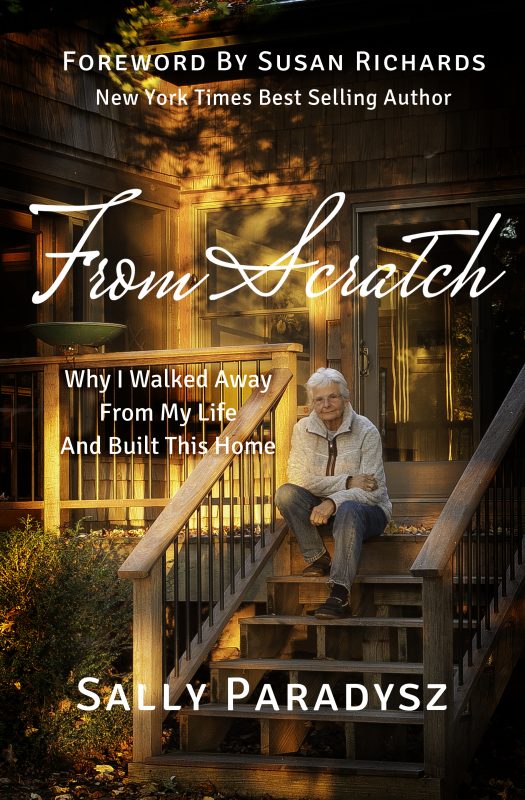You Have My Permission
December 15, 2017 by Rebecca Forster in category Writing tagged as cruise, inspiration, journey, permission, Travel, writing Anyone who knows me knows that I love an adventure. Being asked to speak aboard a ship was definitely on my bucket list, so I jumped at the chance when I was asked to be an onboard lecturer. I prepared five talks that I thought were rather compelling: Peek Behind the Covers, a Look at Publishing, The Caribbean Influence on Popular Literature and Movies, The Five People You Should Meet in the Caribbean, How to Travel like an Author and Everyone has a Story: What’s Yours?.
Anyone who knows me knows that I love an adventure. Being asked to speak aboard a ship was definitely on my bucket list, so I jumped at the chance when I was asked to be an onboard lecturer. I prepared five talks that I thought were rather compelling: Peek Behind the Covers, a Look at Publishing, The Caribbean Influence on Popular Literature and Movies, The Five People You Should Meet in the Caribbean, How to Travel like an Author and Everyone has a Story: What’s Yours?.
Since I had sailed on this ship as a passenger, I knew the people coming to listen to me were well traveled, curious, intelligent and fun. On my speaking days, they gathered to hear me in the big theatre to watch my PowerPoint presentations and see me slide hither and yon on the dance floor when the sea got rough. At the end of each of my presentations, I asked if there were questions. There weren’t – at least not questions for public consumption. Instead, many in the audience came to speak to me privately. They wanted to talk about their own writing ambitions. There was a surgeon who wanted to write a children’s book, a woman in her nineties whose own children were asking that she write a memoir. There was a man who had written a business book a decade ago but he had always wanted to write a novel. And there was a composer who, as he listened to me, thought to combine lyrics and a story to create a unique novel.
After listening to every person who spoke to me after my lecture, or caught me on deck, or sat with me in the dining room it finally dawned on me what they were after. They wanted my permission to follow their dreams.
[tweetshare tweet=”@Rebecca_Forster: You have my permission . . .follow your dreams.” username=”A_SliceofOrange”]
Strangely, when it comes to fiction or memoir, many of us believe that our words are not as valuable as the next persons. We convince ourselves that writing with honesty and passion will somehow diminish us in the eyes of the world – or at least those we care about. We offer our writing up with caveats like ‘it is silly’, ‘you probably won’t like it’, and ‘promise not to laugh’.
I heard these things in the voices of the people on that ship, but when we were done talking I heard something else. I heard confidence. I heard the excitement. I heard their brains turning as they planned their books. By taking that first step – admitting they harbored dreams of authorship to someone who was already there – they had given themselves permission to write. When we all parted, I knew exactly where they were going. They were going home to put pen to paper or fingers to keyboards. They had taken more than a cruise, they had taken a journey and I have no doubt that by the end of that journey they will have written their book.
Give yourself permission to do whatever it is you dream of doing. If your dream is to write a book, do it with honesty and passion – and don’t forget to share it with the rest of us.
Rebecca
1 0 Read more
Monty Hall & Me by Rebecca Forster @Rebecca_Forster
October 15, 2017 by Rebecca Forster in category The Write Life by Rebecca Forster, Writing tagged as children, Family, game shows, inspiration, life choices, Life Lessons, Monty Hall, television, writing inspiration “This is a story about Monty Hall, the velvet-voiced, handsome host of Let’s Make a Deal. He passed away recently and it broke my heart because Monty Hall and I had a history.
“This is a story about Monty Hall, the velvet-voiced, handsome host of Let’s Make a Deal. He passed away recently and it broke my heart because Monty Hall and I had a history.
I was a little depressed after I had my first baby and longing to get back to ‘the real world’ when I saw an ad: be a contestant on Let’s Make a Deal. Contestants were supposed to dress up as something funny but there was nothing funny about a postpartum mommy body so I went for the sympathy angle. I cut up a crib mobile made of fabric hearts, sewed the hearts onto a white hat and made a sign that said: HAVE A HEART, LET’S MAKE A DEAL. The neighbor watched the baby and I drove to Hollywood where two hundred people were lined up against a chain-linked fence outside the studio. They were dressed like alligators, killer clowns and French maids. I joined the fray just as a young producer trolled the line, pointing at people.
“You. You. You. That’s it for today. Come back another time.”
OMG! He didn’t pick me. There I was literally wearing my heart – okay, not on my sleeve – but all over me. I threw myself at him. I grabbed his sleeve. I begged.
“I NEEEEDDDDDD TO GET IN THAT STUDIO! I JUST HAD A BABY.”
He let me in.
Once inside, the producers advised us to make eye contact with Monty Hall. Check. No matter where he went my eyes bored into him. He itched, he freaked, he couldn’t figure out where the laser points of focus were coming from and he kept looking for the source. Then he saw me the crazy, desperate lady in the white hat with dancing hearts on it. I think he chose me just to make me stop glaring at him. I got all the way to the big deal and lost, but that was fine. My consolation prize was a two-week trip to the Bahamas and a thousand dollars. I went home happy. Monty Hall probably went home and had nightmares for weeks.
Fast-forward 32 years. Monty Hall is sitting behind my family and me in the theater. He is a little stooped, silver-haired, but still handsome. When my family goes to stretch their legs, I introduce myself and tell him the story that has become a legend in our family. He is gracious. He chats with me until the house lights dim. Before we take our seats, he asks:
“How old is the baby now?” As if on cue, my thirty-two-year-old son walked down the aisle. They shook hands. The house lights went down. We all watched the end of the play. I gave my son’s hand a squeeze. Life was good.
As if on cue, my thirty-year-old son walks down the aisle. They shake hands. The house lights go down. We watch the end of the play. I give my son’s hand a squeeze. Monty Hall walks out of the theater ahead of us and I never see him again.
The moral of the story is this: choose a door, any door but choose. What is behind that door will be exciting or surprising, charming or even challenging, but you will be better for turning the knob.
Monty Hall was behind two of my life’s doors. He made me feel lucky once and honored the second time. TY Monte Hall. I know that the door that opened for you not so long ago will be the biggest deal of all and you deserve that heavenly prize.
P.S. That is not me in the picture.
0 0 Read moreSTUMPED
August 15, 2017 by Rebecca Forster in category The Write Life by Rebecca Forster, Writing tagged as building, challenges, inspiration, write life, Writer, writing
The other day I came home to find the men I hired to build my patio sitting in my backyard looking at a stump. This was not a normal stump. This was a giant. Paul Bunyan, Big John kind of stump. I sat down with them and I, too, considered the stump.
“George had to get his chain saw for that sucker,” one of them finally said.
“Took two hours to get it out,” another offered.
“I think it broke George’s saw,” the first chimed in.
“Why didn’t you leave it in the ground,” I asked. “You know, pour the cement around it?”
“We thought about it,” the third said. “It wouldn’t have been right.”
They told me that they had managed to cut it up into the piece we were looking at but that it had been twice as big and buried deep in the ground; a remnant of a primordial tree. Their task had been Herculean. They told me that if they poured the cement over the stump, the darn thing could rot and my steps would fall in, and I would be upset with them because they had poured cement over a stump the size of San Francisco.
“It looks petrified,” I said. “How many years do you think it would take to rot?”
The first guy shrugged, “Twenty. Thirty years.”
I shrugged back. I would probably be dead by the time the stump rotted and my stairs fell in. I guess it was the principal of the thing. They would have known the stump was there.
We sat in the hot sun a while longer. Someone suggested carving the stump into the likeness of the contractor. I liked that idea but no one knew how to carve. I thought we could make it into a table. Eventually, we all stopped looking at the stump. The men moved it out of the way and started work again; I went inside to make dinner.
That stump has now been in my backyard for months. I can’t bring myself to get rid of it. But, like all things that are hard to get rid of, it eventually served a purpose. It taught me a few lessons:
1) Everybody has a stump. It might be in your real backyard, your professional backyard or your personal backyard, but it is undoubtedly there.
2) What you do with your stump will tell you a lot about yourself. Either you will dig it up and deal with it, or you will leave it to rot.
3) If you’re stumped and need help there is always someone willing to work hard with you to take care of it as long as you work as hard as they do.
4) You can never go through a stump but don’t panic. You can go around them, over them and sometimes even under them but that takes the longest.
5) Sometimes stumps are not as big as they look and sometimes they are bigger. Size doesn’t matter. Stumped is stumped.
6) Removing a stump but choosing to keep it as a reminder of what stood in your way is a good thing. When you look at it, you will always know that when it came to you against the stump, you won.

Contact me: http://rebeccaforster.com/
Subscribe and get my 2-book starter library FREE:
Follow me on Bookbub!
Follow me on Facebook
Follow me on Twitter
1 0 Read more
Encouragement, Inspiration, Motivation; Oh My! by Kitty Bucholtz
August 9, 2017 by Kitty Bucholtz in category It's Worth It by Kitty Bucholtz tagged as inspiration, It's Worth It, Kitty Bucholtz, Motivational, writing motivationKitty Bucholtz is traveling today, so we’re running an article from our archives.
Kitty will return on the 14th for her August post.

I’m taking a page from Michael Hyatt’s playbook and trying to write ALL my blog posts for the next week or two in ONE day. Whew! The good news is that I get to write all day! Haha! The other good news is that with my brain focused on one thing, I’m writing better blog posts, though I’m not sure if it’s taking me any less time. (Maybe if I do this regularly it will go faster, but not yet.)
The other interesting thing is that my posts are becoming somewhat thematic as I write them all today. Everything I’ve wanted to write has to do with encouragement in one form or another. (Due to the luck of what day the 9th fell on this month, because that’s my blog day here, I have three posts hitting three different websites today!)
From a writing perspective, I want to encourage you to keep asking “Why?” John and I went to the East Valley Authors annual writers retreat last Saturday and had a great time. But on the way home, one or the other of us would start muttering, “Oh damn…” Laurie Schnebly Campbell taught two workshops on character motivation for the whole day, and it was startling to suddenly realize what you thought was your character’s motivation was just your author reasoning. It was a great day and Laurie gave everyone a lot to think about.
It also made me reconsider my own motivations. Why am I doing what I’m doing? And as Laurie said, “And why is that? And why is that?” After some work, you get another “sudden” revelation about the real why. Whether it’s for your character or for figuring out yourself, it’s good stuff.
When you are feeling tired or disheartened about your writing career, I want to encourage you to ask yourself why. The initial answer might be, “I write so slowly, I’m not getting many books out.” Or “I’m published but not selling many books.” Or “I self-published to make more money and I’m not making much.” Whatever the first answer is, ask yourself why about that. Why do you write slowly? Why aren’t you selling many books? Why do you have these expectations about money? And why is that? And why is that?
As you keep going deeper into the “why?” follow-ups, you may find your deepest motivation is something entirely different. Maybe it’s not money or fame that drives you, but a craving for respect from a significant person in your life who values money or fame. Maybe it’s not storytelling that drives you write, but the need for an inexpensive creative outlet. Who knows? You won’t even know until you start asking these questions.
I’ve learned some difficult things about myself over the years. Not having financial success makes me feel like I haven’t moved away from my poorer, other-side-of-the-tracks roots. I do write to tell the stories in my head, but I mostly write for the same reasons I teach – to connect with others and share what I’ve learned and entertain them in the process.
Knowing these things helps me understand why some advice from other writers works for me and some doesn’t. For instance, the “write every day” advice or the people who say “I have to write every day because I can’t not write” – that doesn’t inspire or motivate me because I can get the same high from teaching, and I can write every day for weeks, then not at all for a month or two, and I’m still quite happy. Up until recently, I felt guilty about that! I thought I had to feel the way “everyone else” feels in order to be “a real writer.”
I hope this helped you think about your career from a new perspective. If you’re interested in a more spiritual bit of encouragement, check out my “7 Steps to Building a Great Business and a Great Life” post on my author website. And if you’re giving some thought to quitting your writing, read “If You’re a Writer in Need of a Cheerleader” on Writer Entrepreneur Guides where I teach and share on writing topics.
Good luck! You can do it!
Stop! 10 Things Writers Shouldn’t Do
July 15, 2017 by Rebecca Forster in category The Write Life by Rebecca Forster, Writing tagged as inspiration, lessons, rules, writing
DON’T EVER. . .
 1.Stop Reading: After a long day of writing, the last thing you want to do is pick up someone else’s book – do it anyway. It will help you relax and keep you motivated – not to mention you might pick up a few literary tricks along the way
1.Stop Reading: After a long day of writing, the last thing you want to do is pick up someone else’s book – do it anyway. It will help you relax and keep you motivated – not to mention you might pick up a few literary tricks along the way
2. Rely on Inspiration: Inspiration is a contact sport. Pound the keys, search the web for topics that are compatible with your story, be proactive about inspiration.
3. Veer From Your Genre: So you want to write the first science fiction, erotic, mystery, romance? Don’t do it. If you want passionate and engaged readers make sure your book can be defined.
4. Get Boring: If you’re bored writing your book chances are that your readers will be bored reading it. Take your book to the top and then go over it. Conflict moves stories.
5. Default to Perfection: Men are fearless, women are sexy and everyone is just too cool for school. Readers want to relate to your characters – imperfections, shortcomings and all.
6. Lose the Through Line: Remember what story you’re writing. If you started out writing about a girl torn between her family and a soldier she loves, don’t go off into political discourse about war.
7. Be Afraid to Cut, Cut, Cut: Cut close to the bone and let the reader see the skeleton of your book instead of burying her in unnecessary description or dialogue. Let a reader’s imagination fill in the rest.
8. Throw in the Towel: The easiest thing in the world is starting a book; the hardest thing is finishing one. The cool thing is that you can do it with just an ounce more determination and patience. Yes, an ounce.
9. Don’t Do it Alone: For some writers a critique group works. For others it’s one trusted voice cheering them on. Writers may live with their fictional characters, but they thrive with a friend(s) who believes in them.
10. Beat Yourself Up: The book isn’t shaping up the way you want? Someone read a chapter and didn’t care for it? Feel like jumping off a cliff? You can spend your time beating yourself up, or beating the keys on your computer. Beat the keys and show the world what you’re made of. We’re all waiting for your book.
2 0 Read more
Affiliate Links
A Slice of Orange is an affiliate with some of the booksellers listed on this website, including Barnes & Nobel, Books A Million, iBooks, Kobo, and Smashwords. This means A Slice of Orange may earn a small advertising fee from sales made through the links used on this website. There are reminders of these affiliate links on the pages for individual books.
Search A Slice of Orange
Find a Column
Archives
Featured Books
APPLE, TABLE, PENNY . . . MURDER
How can you explain a disappearance when everyone denies it happened?
More info →THE TRUTH THAT CAN’T BE TOLD BOOK 2
Unrequited love, quiet shame, guttural fear are the truths we hide from the world…often from those we love the most.
More info →THEIR NIGHT TO REMEMBER
A handsome stranger…With an ulterior motive.
More info →Newsletter
Contributing Authors
Search A Slice of Orange
Find a Column
Archives
Authors in the Bookstore
- A. E. Decker
- A. J. Scudiere
- A.J. Sidransky
- A.M. Roark
- Abby Collette
- Alanna Lucus
- Albert Marrin
- Alice Duncan
- Alina K. Field
- Alison Green Myers
- Andi Lawrencovna
- Andrew C Raiford
- Angela Pryce
- Aviva Vaughn
- Barbara Ankrum
- Bethlehem Writers Group, LLC
- Carol L. Wright
- Celeste Barclay
- Christina Alexandra
- Christopher D. Ochs
- Claire Davon
- Claire Naden
- Courtnee Turner Hoyle
- Courtney Annicchiarico
- D. Lieber
- Daniel V. Meier Jr.
- Debra Dixon
- Debra H. Goldstein
- Debra Holland
- Dee Ann Palmer
- Denise M. Colby
- Diane Benefiel
- Diane Sismour
- Dianna Sinovic
- DT Krippene
- E.B. Dawson
- Emilie Dallaire
- Emily Brightwell
- Emily PW Murphy
- Fae Rowen
- Faith L. Justice
- Frances Amati
- Geralyn Corcillo
- Glynnis Campbell
- Greg Jolley
- H. O. Charles
- Jaclyn Roché
- Jacqueline Diamond
- Janet Lynn and Will Zeilinger
- Jaya Mehta
- Jeannine Atkins
- Jeff Baird
- Jenna Barwin
- Jenne Kern
- Jennifer D. Bokal
- Jennifer Lyon
- Jerome W. McFadden
- Jill Piscitello
- Jina Bacarr
- Jo A. Hiestand
- Jodi Bogert
- Jolina Petersheim
- Jonathan Maberry
- Joy Allyson
- Judy Duarte
- Justin Murphy
- Justine Davis
- Kat Martin
- Kidd Wadsworth
- Kitty Bucholtz
- Kristy Tate
- Larry Deibert
- Larry Hamilton
- Laura Drake
- Laurie Stevens
- Leslie Knowles
- Li-Ying Lundquist
- Linda Carroll-Bradd
- Linda Lappin
- Linda McLaughlin
- Linda O. Johnston
- Lisa Preston
- Lolo Paige
- Loran Holt
- Lynette M. Burrows
- Lyssa Kay Adams
- Madeline Ash
- Margarita Engle
- Marguerite Quantaine
- Marianne H. Donley
- Mary Castillo
- Maureen Klovers
- Megan Haskell
- Melanie Waterbury
- Melisa Rivero
- Melissa Chambers
- Melodie Winawer
- Meriam Wilhelm
- Mikel J. Wilson
- Mindy Neff
- Monica McCabe
- Nancy Brashear
- Neetu Malik
- Nikki Prince
- Once Upon Anthologies
- Paula Gail Benson
- Penny Reid
- Peter J Barbour
- Priscilla Oliveras
- R. H. Kohno
- Rachel Hailey
- Ralph Hieb
- Ramcy Diek
- Ransom Stephens
- Rebecca Forster
- Renae Wrich
- Roxy Matthews
- Ryder Hunte Clancy
- Sally Paradysz
- Sheila Colón-Bagley
- Simone de Muñoz
- Sophie Barnes
- Susan Kaye Quinn
- Susan Lynn Meyer
- Susan Squires
- T. D. Fox
- Tara C. Allred
- Tara Lain
- Tari Lynn Jewett
- Terri Osburn
- Tracy Reed
- Vera Jane Cook
- Vicki Crum
- Writing Something Romantic
Affiliate Links
A Slice of Orange is an affiliate with some of the booksellers listed on this website, including Barnes & Nobel, Books A Million, iBooks, Kobo, and Smashwords. This means A Slice of Orange may earn a small advertising fee from sales made through the links used on this website. There are reminders of these affiliate links on the pages for individual books.














































